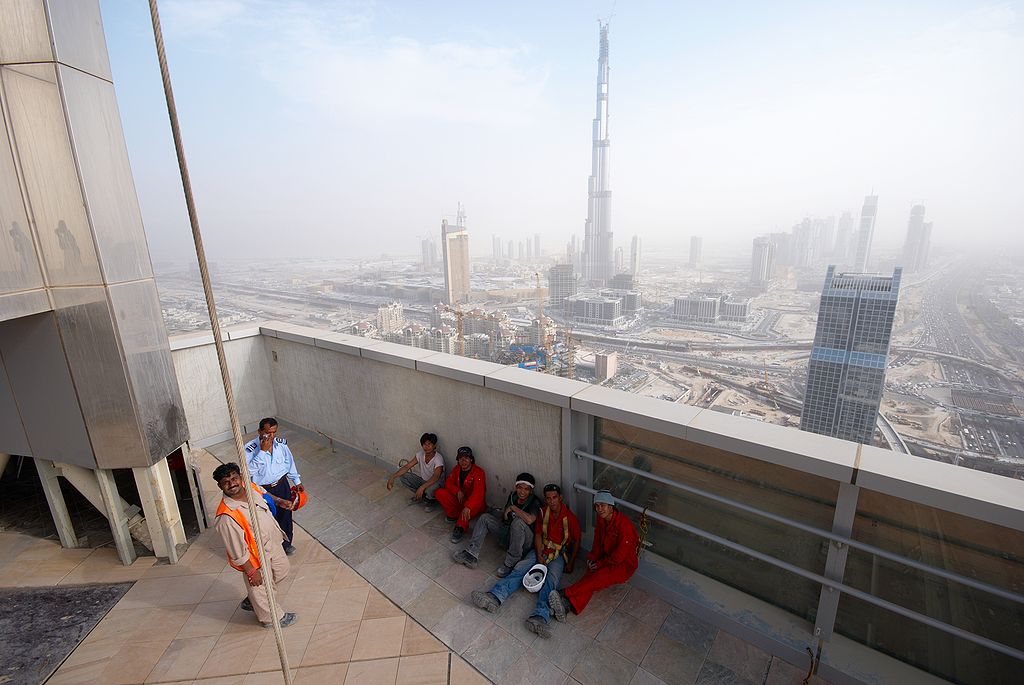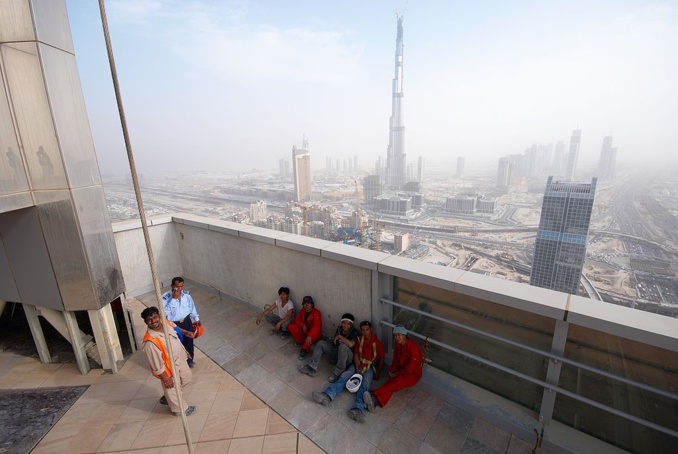If a country cannot provide food for their migrant workers, it says a lot about its financial condition.
Collapse in oil prices has forced the kingdom to introduce austerity measures. This, in turn, led to delays in payments to contractors.
Economists point out that new details of the Saudi Arabian crisis just confirm that the negative consequences are stronger than expected. Already now many construction projects have been stopped, and recruitment - terminated.
During the crisis of 2009, the government assisted companies so that they could overcome the shortage of funds. This time, however, the Ministry of Finance reduced size of the advance payment from 20% to 5%.
Back in February, the bankers said that even top managers had been suffering from payments delays, and it was difficult to see how long this tight situation would last. Troubles of the Indian and Pakistani workers indicate that since February, the situation has not improved.
Migrant workerss of India and Pakistan are suffering from Saudi Arabia’s problems the hardest. This group of workers was left without work and basic amenities, such as insurance coverage, food, housing, medical care. The situation improved slightly only after intervention of the embassies.
Yet, these workers cannot go back home since they were not paid salaries for months. Now, they do not even believe that it would ever happen. If they now leave the kingdom, they may never come back. According to the country’s laws, visa receiving requires approval of the employer.
Naturally, they do not want to go home empty-handed after a few years of work. Employers themselves are keeping silent about wages, so the people are simply waiting. If they leave now, they definitely stay penniless.
Other governments, trying to put pressure on Riyadh, have already meddled in the situation. Minister of Labor of Saudi Arabia agreed to help the workers to get their money, yet nothing has changed so far.
It is unlikely that something will become better in the near future. The Saudi economy still has not reduced its dependence on oil, so the perspectives are quite gloomy. If price for a barrel continues to hang around $ 42, money in the Saudis’ wallets could end up significantly faster than everyone expects.
Meanwhile, Saudi Arabia keeps oil production at record levels. The indicator reached 10.67 million barrels per day, which allowed the country to save market share. On the other hand, it is saturating the market, and does nothing good for prices in the short term.
If oil prices remain near today's lows, restoration of Saudi Arabia’s former glory will take many years.
source: reuters.com, bbc.com
Collapse in oil prices has forced the kingdom to introduce austerity measures. This, in turn, led to delays in payments to contractors.
Economists point out that new details of the Saudi Arabian crisis just confirm that the negative consequences are stronger than expected. Already now many construction projects have been stopped, and recruitment - terminated.
During the crisis of 2009, the government assisted companies so that they could overcome the shortage of funds. This time, however, the Ministry of Finance reduced size of the advance payment from 20% to 5%.
Back in February, the bankers said that even top managers had been suffering from payments delays, and it was difficult to see how long this tight situation would last. Troubles of the Indian and Pakistani workers indicate that since February, the situation has not improved.
Migrant workerss of India and Pakistan are suffering from Saudi Arabia’s problems the hardest. This group of workers was left without work and basic amenities, such as insurance coverage, food, housing, medical care. The situation improved slightly only after intervention of the embassies.
Yet, these workers cannot go back home since they were not paid salaries for months. Now, they do not even believe that it would ever happen. If they now leave the kingdom, they may never come back. According to the country’s laws, visa receiving requires approval of the employer.
Naturally, they do not want to go home empty-handed after a few years of work. Employers themselves are keeping silent about wages, so the people are simply waiting. If they leave now, they definitely stay penniless.
Other governments, trying to put pressure on Riyadh, have already meddled in the situation. Minister of Labor of Saudi Arabia agreed to help the workers to get their money, yet nothing has changed so far.
It is unlikely that something will become better in the near future. The Saudi economy still has not reduced its dependence on oil, so the perspectives are quite gloomy. If price for a barrel continues to hang around $ 42, money in the Saudis’ wallets could end up significantly faster than everyone expects.
Meanwhile, Saudi Arabia keeps oil production at record levels. The indicator reached 10.67 million barrels per day, which allowed the country to save market share. On the other hand, it is saturating the market, and does nothing good for prices in the short term.
If oil prices remain near today's lows, restoration of Saudi Arabia’s former glory will take many years.
source: reuters.com, bbc.com


















